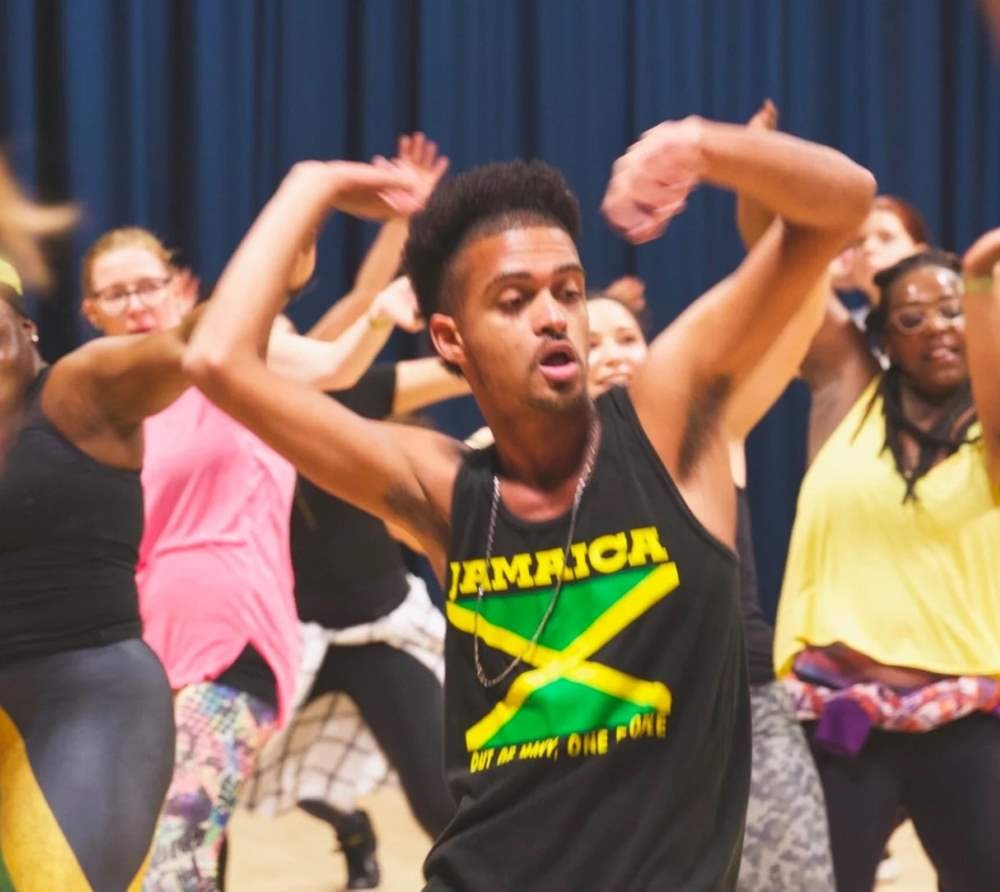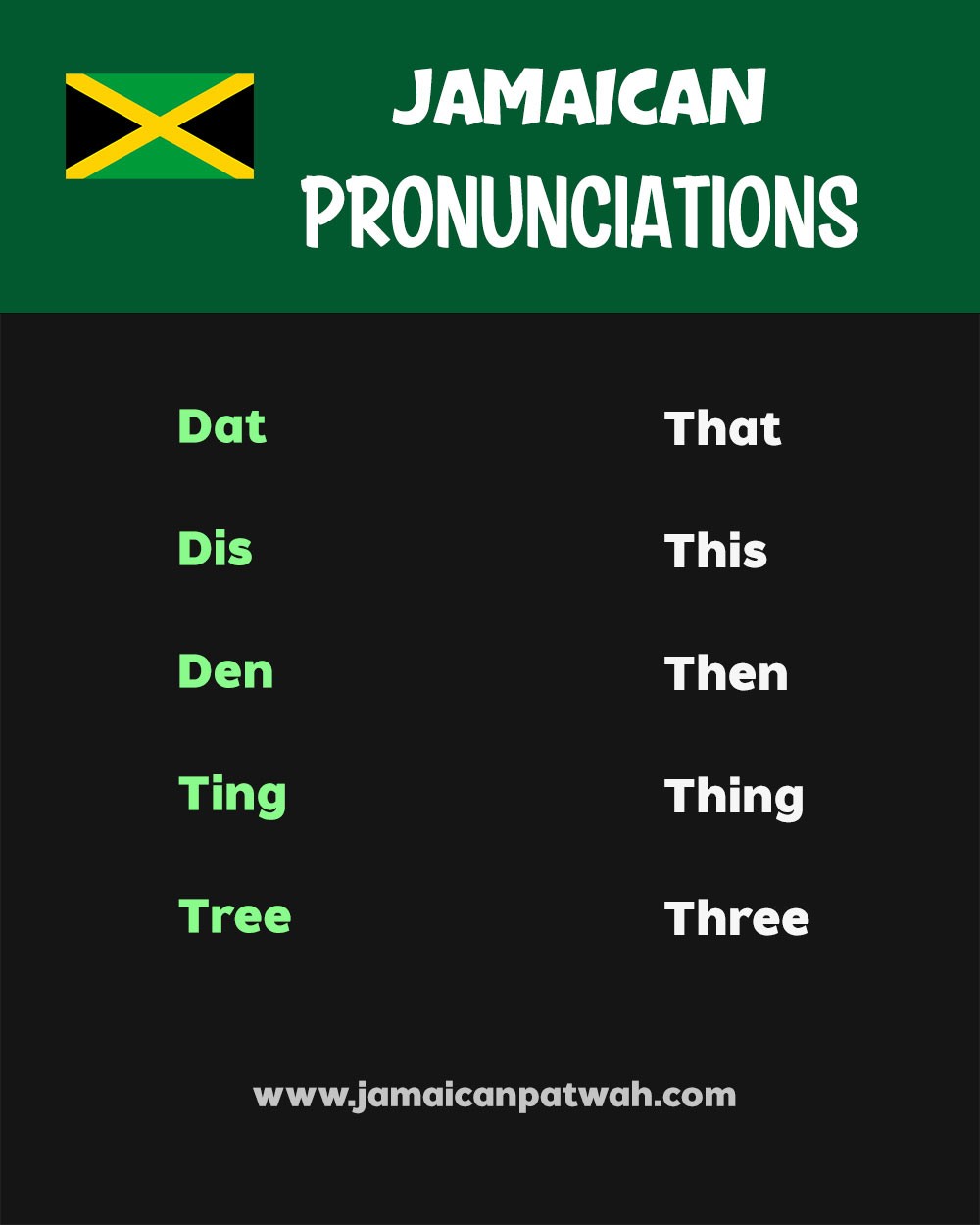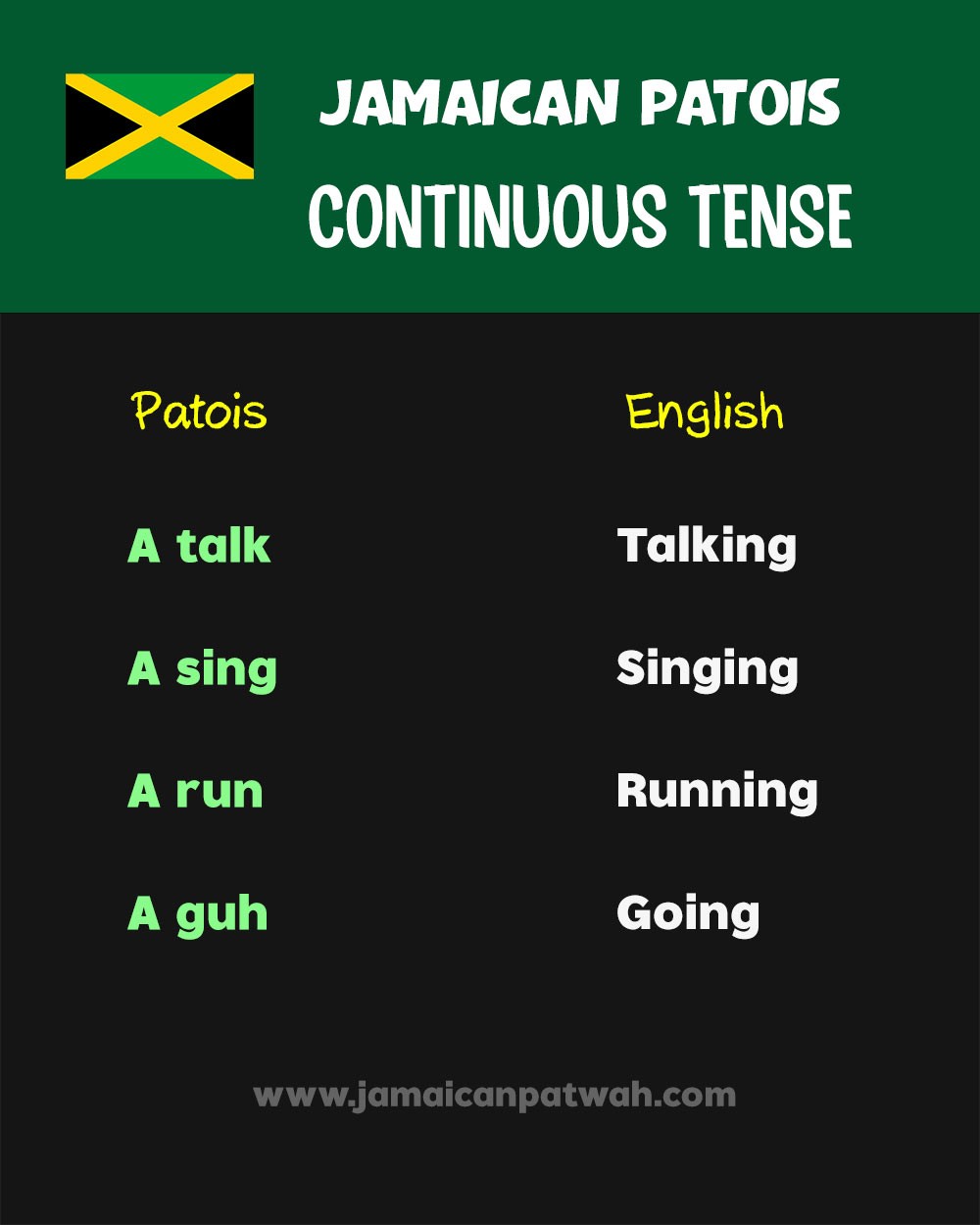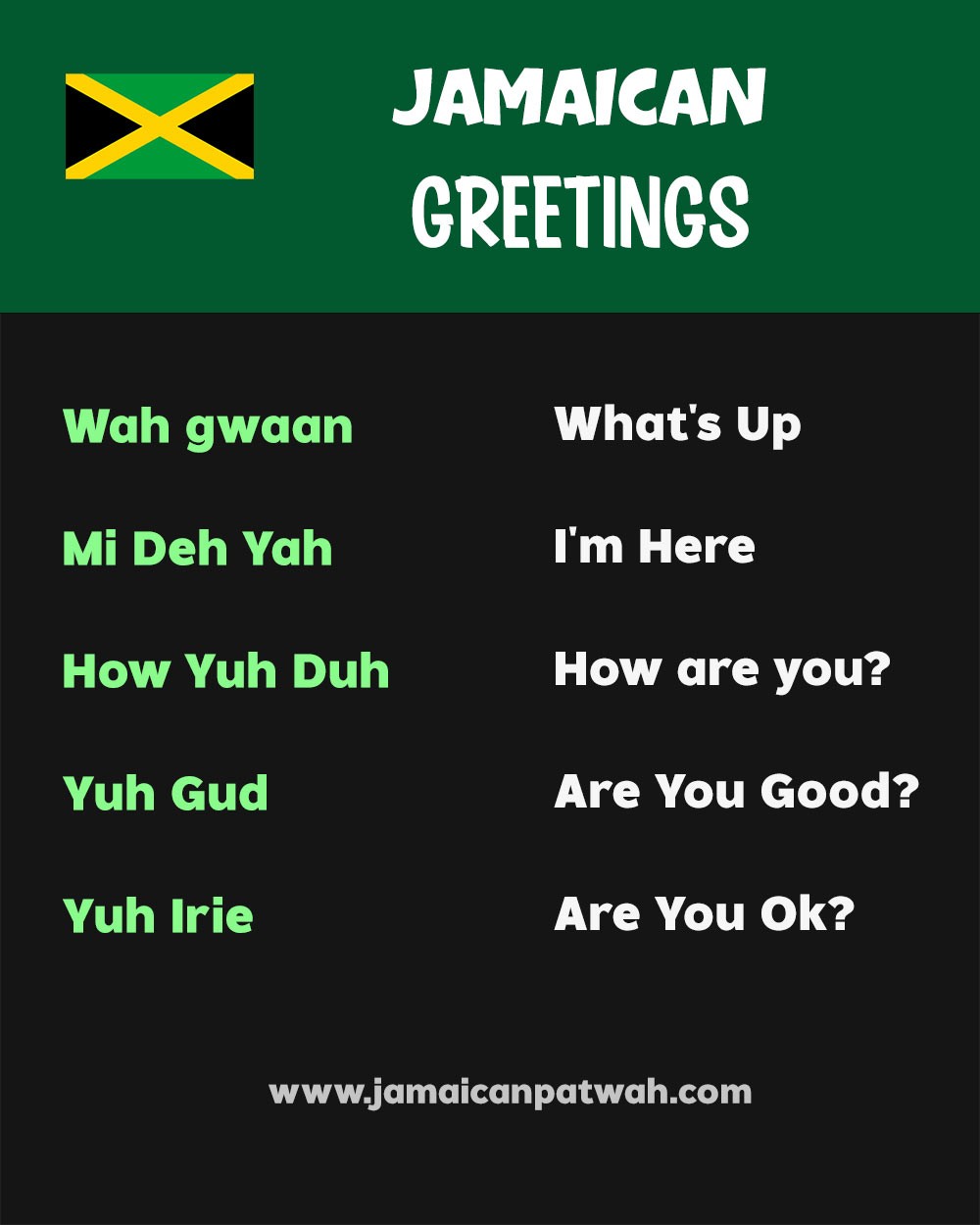Jamaican Creole, often called Patois or Patwa, is more than just a dialect; it’s a vibrant language brimming with cultural significance. Are you eager to discover How To Learn Jamaican Creole effectively? At LEARNS.EDU.VN, we’ll guide you through pronunciation, grammar, and vocabulary, and provide resources to master this dynamic language. Unlock the richness of Jamaican culture and learn a new way to connect with people. Dive into the world of Patois and gain a newfound appreciation for its unique linguistic features.
1. Unveiling the Origins of Jamaican Creole
Imagine a cultural melting pot where different languages converge and blend. That’s essentially the story of how Jamaican Creole came to be. It’s a language shaped by the diverse people who arrived in Jamaica, each contributing their linguistic influences to create a unique form of communication.
Jamaican Creole wasn’t simply a random fusion of languages. It was born from the shared experiences, joys, and struggles of its speakers. It became the voice of Jamaica, a way to express their identity and unity. Today, when you hear Jamaican Creole, you’re hearing echoes of history, the stories of countless lives woven into a language as lively and dynamic as the people who speak it.
2. Embarking on Your Jamaican Creole Learning Journey
This guide is designed to equip you with the basic skills needed to speak and understand Jamaican Creole. We’ll cover pronunciation, grammar, vocabulary, and cultural context, providing you with practical knowledge to communicate effectively. By the end of this journey, you’ll be equipped to hold basic conversations, understand the nuances of Patwa, and gain a newfound appreciation for Jamaican culture.
3. Mastering Pronunciation: The Key to Authenticity
Pronunciation is essential to speaking Jamaican Creole authentically. Unlike Standard English, Patois has its own set of sounds that can be tricky but are essential to get right.
3.1. Decoding Distinctive Sounds
Let’s focus on some of the standout sounds in Patois that you might not find in English:
- The “th” Sound: This often changes to a “d” or “t” sound. So, “that” becomes “dat,” and “think” becomes “tink.”
- Dropping and Adding “H”: Jamaicans sometimes drop the “h” at the beginning of words, saying “ed” instead of “head.” Conversely, they might add an “h” to words starting with a vowel, turning “all” into “hall.”
3.2. Immersing Yourself in Authentic Audio
The best way to learn these sounds is to hear them in action. I recommend listening to audio recordings of native speakers or using apps that provide phonetic transcriptions. This way, you can practice and compare your pronunciation with real examples. Platforms like YouTube channels dedicated to teaching Patois can be incredibly helpful.
4. Understanding Jamaican Creole Grammar
Grammar is the backbone of any language, and Jamaican Creole is no exception. In this section, we’ll delve into the rules and patterns that give shape to Patois sentences. You’ll learn about the essentials of subject-verb agreement, how plurals are formed, and the special features that make Patois unique.
4.1. The Basic Structure of Sentences
Jamaican Creole sentences, like English ones, typically follow a subject-verb-object structure. However, one key difference is that subject-verb agreement doesn’t exist in Patois. The verb form remains consistent regardless of the subject.
4.1.1. Subject-Verb Agreement Differences
| Jamaican Creole | Standard English |
|---|---|
| Mi run | I run |
| Im run | He runs |
| Shi run | She runs |
| Wi run | We run |
| Dem run | They run |
| Unu run | You all run |
| Eyah run | It runs |
| Yu run | You run |






4.1.2. Plural Formation
While English adds “-s” or “-es” to form plurals, Jamaican Creole uses “dem” after the word or “nuff” or a number before it.
| Jamaican Creole | Standard English |
|---|---|
| Plate dem | Plates |
| Baby dem | Babies |
| Pen dem | Pens |
| Teacha dem | Teachers |
| Book dem | Books |
| Nuff banana | Many bananas |
| Ten bwoy | Ten boys |
Note: The letters “-s” or “-es” don’t always indicate plurality in Jamaican Creole, as seen in “Waan shoes” (A shoe) and “Waan drinks” (A drink).
4.2. Pronoun Usage
In Jamaican Creole:
- The pronoun “im” can refer to either “he” or “she.”
- There’s no distinction between subject and object pronouns.
| Jamaican Creole | Standard English |
|---|---|
| Female – im frack look gud | Her frock (dress) looks good |
| Male – im fada gaan | His father is gone |
| Subject – mi a guh | I am going |
| Object – come fi mi | Come for me |
4.2.1. Denoting Persons
| Jamaican Creole | Standard English |
|---|---|
| Person Speaking (first person) | ‘Mi’ or ‘wi’ |
| Person being spoken to (second person) | ‘yu’ or’unu’ |
| Person being spoken about (third person) | ‘im’ or ‘dem’ |
Possessive pronouns like “your,” “her,” or “their” don’t exist in Jamaican Creole. Instead, “fi” is used.
| Jamaican Creole | Standard English |
|---|---|
| Fi mi backle | My bottle |
| Fi yu backle | Your bottle |
| Fi dem backle | Their bottle |
4.3. Unique Grammatical Features
4.3.1. Copula Usage
The copula, a connecting word, is often “a” in Jamaican Creole, used for linking words and the continuous tense.
| Jamaican Creole | Standard English |
|---|---|
| Im a run | He is running |
| Im a guh fi it | He is going for it |
| Mi a teacha | I am a teacher |
4.3.2. Repetition for Emphasis
Repetition is used for degrees of comparison and emphasis. For example, to express how big a child has become:
| Jamaican Creole | Standard English |
|---|---|
| Di bwoy big, eeh | The boy has grown |
| Fi real, im big-big | For real, he is very big |
| A true! Him get big-big | It is true, he has gotten big |
4.3.3. Double Negatives
While unacceptable in Standard English, double negatives are common in Jamaican Creole.
| Jamaican Creole | Literal Translation | Standard English |
|---|---|---|
| Mi nuh have nun | I don’t have none | I don’t have any |
| Shi don’t have nothing | She doesn’t have nothing | She doesn’t have anything |
| Dem don’t live dere nuh more | They don’t live there no more | They don’t live there any more |
| Mi nah guh.nuh weh | I am not going no where | I am not going anywhere |
| Nobady neva see’m | Nobody never saw him | Nobody saw him |
| Nobady nuh live ova deh | Nobody doesn’t lives over there | Nobody lives over there |
4.3.4. Compound Words
Compound words are frequently used in Jamaican Creole.
| Jamaican Creole | Literal Translation | Standard English |
|---|---|---|
| Han miggle | Hand middle | The palm (of your hand) |
| Hiez-ole | Ear hole | The ear or the auditory passage |
| Bwoy Pickney | Boy Child | A Young boy |
| Foot battam | Foot bottom | The sole (of your foot) |
| Nose-ole | Nose hole | Nostril |
| Yeye-Wata | Eye Water | Tears |
| Yeye-ball | Eye ball | Eye |
4.3.5. Tense
In Jamaican Creole, verbs don’t change to indicate tense. Instead, a word is placed before the verb.
Present Tense:
| Jamaican Creole | Standard English |
|---|---|
| Mi guh | I am going |
| Di ooman a guh a town | The woman is going to town |
| Im a cum | He is coming |
| Mi a cum | I am coming |
Past Tense:
| Jamaican Creole | Standard English |
|---|---|
| Mi did guh | I went |
| Di ooman did guh a town | The woman went to town |
| Im did cum | He came |
| Mi did cum | I came |
Past tense is formed using “en,” “ben,” or “did,” unlike Standard English, which changes the verb form.
5. Building Your Jamaican Creole Vocabulary
Vocabulary is the cornerstone of any language, and in Patois, it’s no different. This section will introduce you to the words and phrases that are essential for everyday communication in Jamaican Patois.
5.1. Essential Words and Phrases
Here’s a table of common English words alongside their Patois translations, which will help you start building your Patois vocabulary:
| English | Jamaican Patois |
|---|---|
| Hello | Wah Gwaan |
| Goodbye | Likkle more |
| Please | Pleez |
| Thank You | Tank You |
| Yes | Yeh/Yah |
| No | Nuh |
| Friend | Fren |
| Water | Wata |
| Love | Luv |
5.2. Greetings and Common Expressions
Familiarize yourself with these Patois greetings and expressions to sound like a native when you meet someone:
- Good morning: “Mawnin”
- How are you: “How yuh duh?”
- I’m fine, thank you: “Mi deh yah, tank yuh”
- What’s happening?: “A weh yuh a seh?”
With this vocabulary list, you’re well on your way to holding conversations in Jamaican Patois. Remember, practice is key, so try using these words and phrases as much as possible to become more comfortable with them. Soon, you’ll be able to express yourself with the same ease as a local.
6. Context Matters: When and Where to Use Patois
Language is deeply intertwined with culture, and Jamaican Patois is a reflection of the island’s social fabric. This section will guide you through the appropriate use of Patois in various settings, helping you navigate the social landscapes of Jamaica with ease.
6.1. Adapting to Different Scenarios
Patois is used in a range of contexts, from casual conversations among friends to more formal settings. Here’s how to adjust your Patois accordingly:
- Casual Settings: Feel free to use slang and idiomatic expressions. For example, “Mi soon come” means “I’ll be right back.”
- Formal Situations: Stick to more standard phrases and avoid slang. Instead of “Wah gwaan,” use “How are you doing?”
6.2. Understanding Cultural Nuances
Understanding the cultural nuances of Patois can help you communicate more effectively:
- Respectful Address: Use “Miss” or “Missah(Mister)” followed by the person’s first name to show respect.
- Greetings: It’s common to greet everyone when entering a room, not just the people you know.
- Non-Verbal Communication: Body language and tone are important in Patois. A friendly tone and a smile can go a long way.
Remember, language is more than words—it’s about understanding and respecting the culture that gives rise to it.
7. Overcoming Common Learning Hurdles
As with learning any language, you’re bound to encounter some challenges along the way. This section will highlight common mistakes learners of Jamaican Patois often make and provide tips to help you overcome them.
7.1. Common Mistakes to Avoid
Here are some frequent errors to watch out for:
- Overusing Slang: While slang is an integral part of Patois, using it inappropriately or too often can lead to misunderstandings, especially in formal contexts.
- Literal Translations: Directly translating phrases from English to Patois can result in errors. Patois has its own idiomatic expressions that don’t always align with English.
7.2. Tips for Enhanced Learning
To help you master Patois, consider these tips:
- Practice Regularly: Consistent practice is key. Try to use Patois in your daily life, even if it’s just talking to yourself.
- Learn in Context: Understand the meanings of words and phrases within the context of conversations to grasp their proper usage.
By being aware of these common mistakes and applying the tips provided, you’ll be better equipped to navigate the intricacies of Jamaican Patois. Keep practicing, stay patient, and enjoy the process of learning this expressive language.
8. Additional Resources for Learning Jamaican Creole
To further support your journey in learning Jamaican Creole, here are some additional resources that can be of great help.
8.1. Online Dictionaries and Translators
Several online resources can assist you in translating between English and Patois, offering quick definitions and usage examples. These tools are excellent for looking up new words and understanding their context.
8.2. Language Learning Apps
Language learning apps often have user-generated content or community forums where you can find resources for learning Patois. These platforms can provide interactive lessons, quizzes, and opportunities to practice with other learners.
8.3. YouTube Channels
Several YouTube channels are dedicated to teaching Jamaican Patois. These channels often offer lessons on pronunciation, grammar, and vocabulary, as well as cultural insights into the language.
8.4. Websites and Online Communities
Websites like LEARNS.EDU.VN provide comprehensive guides and resources for learning Jamaican Creole. Additionally, online communities such as language exchange forums and social media groups can connect you with native speakers and fellow learners.
9. Cultural Immersion: Experiencing Jamaican Creole Firsthand
Immersing yourself in Jamaican culture can significantly enhance your language learning experience. Here are some ways to immerse yourself in the culture and language:
9.1. Music and Media
Listening to Jamaican music, watching Jamaican films and TV shows, and reading Jamaican literature can expose you to the language in its natural context. Pay attention to the lyrics, dialogues, and cultural references to gain a deeper understanding of the language and culture.
9.2. Connect with Native Speakers
Interacting with native speakers is one of the most effective ways to improve your language skills. Look for opportunities to converse with Jamaican speakers, whether online or in person. You can find language exchange partners through online platforms or attend cultural events in your community.
9.3. Travel to Jamaica
If possible, consider traveling to Jamaica to fully immerse yourself in the language and culture. While in Jamaica, try to interact with locals, visit cultural sites, and participate in cultural activities. This will give you firsthand experience with the language and culture and help you gain a deeper appreciation for both.
10. Maintaining Motivation and Consistency
Learning a new language can be challenging, so it’s important to stay motivated and consistent. Here are some tips for maintaining motivation and consistency in your Jamaican Creole learning journey:
10.1. Set Realistic Goals
Set achievable goals for yourself, such as learning a certain number of new words each week or mastering a specific grammar concept each month. Celebrate your successes along the way to stay motivated.
10.2. Find a Study Buddy
Learning with a friend or study buddy can make the process more enjoyable and keep you accountable. You can practice speaking with each other, quiz each other on vocabulary and grammar, and provide support and encouragement.
10.3. Reward Yourself
Treat yourself when you reach a milestone or achieve a goal. This could be anything from watching a Jamaican movie to trying a Jamaican recipe to buying yourself a small gift.
10.4. Track Your Progress
Keep track of your progress to see how far you’ve come and stay motivated. You can use a language learning app or journal to record your learning activities and track your achievements.
11. Common FAQs About Learning Jamaican Creole
Here are some frequently asked questions about learning Jamaican Creole:
11.1. Is Jamaican Creole a difficult language to learn?
Jamaican Creole can be challenging for English speakers due to its unique pronunciation, grammar, and vocabulary. However, with consistent effort and the right resources, it is definitely possible to learn.
11.2. How long does it take to become fluent in Jamaican Creole?
The amount of time it takes to become fluent in Jamaican Creole varies depending on your learning style, dedication, and exposure to the language. However, with consistent study and practice, you can achieve basic conversational proficiency in a few months and fluency in a year or two.
11.3. Do I need to travel to Jamaica to learn Jamaican Creole?
Traveling to Jamaica can definitely enhance your learning experience, but it is not necessary. With the abundance of online resources and language learning tools available, you can learn Jamaican Creole from anywhere in the world.
11.4. What are some resources for learning Jamaican Creole online?
There are many online resources for learning Jamaican Creole, including language learning apps, websites, YouTube channels, and online communities. Some popular resources include Duolingo, Memrise, YouTube, and LEARNS.EDU.VN.
11.5. How can I practice speaking Jamaican Creole with native speakers?
You can practice speaking Jamaican Creole with native speakers through online language exchange platforms, social media groups, and cultural events in your community. You can also look for opportunities to volunteer or work in Jamaican communities or organizations.
11.6. Is Jamaican Creole recognized as an official language?
While Jamaican Creole is not officially recognized as a language by the Jamaican government, it is widely spoken and understood throughout the country. Efforts are being made to promote the use and recognition of Jamaican Creole in education, media, and other sectors.
11.7. Can I use Jamaican Creole in formal settings?
While Jamaican Creole is commonly used in informal settings, it may not be appropriate for formal situations such as business meetings or academic presentations. In these contexts, it is generally better to use Standard English.
11.8. What are some cultural considerations when learning Jamaican Creole?
When learning Jamaican Creole, it is important to be respectful of Jamaican culture and customs. Avoid using slang or expressions that may be offensive or disrespectful. Show interest in Jamaican music, art, and literature to gain a deeper understanding of the culture.
11.9. How can I improve my pronunciation in Jamaican Creole?
To improve your pronunciation in Jamaican Creole, listen to native speakers and try to imitate their sounds and intonation. You can also use online pronunciation guides and language learning apps to practice your pronunciation.
11.10. Are there any grammar rules I should be aware of when learning Jamaican Creole?
Yes, Jamaican Creole has its own grammar rules that differ from Standard English. For example, Jamaican Creole does not have subject-verb agreement, and it uses different words to indicate tense. Be sure to study the grammar rules of Jamaican Creole to avoid making common mistakes.
12. Embrace the Journey of Learning Jamaican Creole
Learning Jamaican Creole is not just about memorizing words and phrases; it’s about embracing a new culture and connecting with people on a deeper level. As you embark on this journey, remember to stay curious, patient, and persistent. With dedication and the right resources, you can master Jamaican Creole and unlock a world of new experiences.
13. Discover More at LEARNS.EDU.VN
Ready to take your language learning to the next level? Visit LEARNS.EDU.VN to explore a wealth of educational resources, including in-depth articles, language courses, and expert insights. Whether you’re looking to master Jamaican Creole or explore other languages and cultures, LEARNS.EDU.VN is your go-to destination for lifelong learning. Unlock your potential and embark on a journey of discovery with us today!
Address: 123 Education Way, Learnville, CA 90210, United States
WhatsApp: +1 555-555-1212
Website: learns.edu.vn
